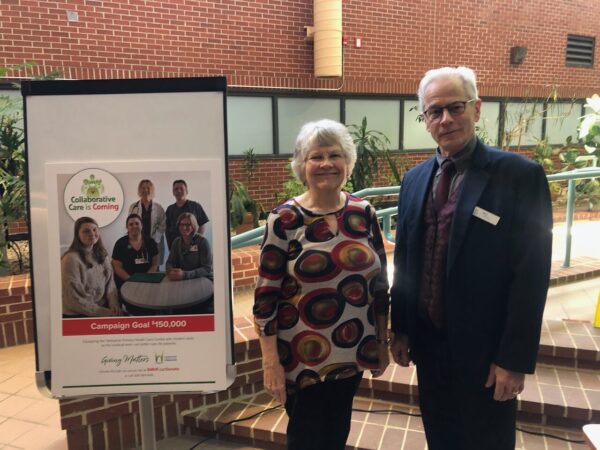“I don’t think any community has figured out how to get to net zero,” says Eddie Oldfield, senior lead of projects for Quest Canada, who are now recruiting for their expanded Net Zero Communities Accelerator Program. “Let alone our provincial or federal governments. But it does take all of us working together to get there,” says Oldfield.
With $2 million in funding from ACOA and complementary funding from individual provinces, QUEST Canada will be helping 15 different municipalities in the Atlantic Provinces create plans and undertake initiatives to help them get to net-zero emissions.
The Net Zero Communities Accelerator Program was originally piloted in New Brunswick, and towns like Oromocto, St. Andrews and Riverview have all participated. The new program includes four New Brunswick communities so far, including Salisbury, Riverview, Grand Bay-Westfield and Fredericton.

QUEST’s work with each municipality is a bit different, depending on where they are in the process of planning towards net-zero. In Oromocto, “they had a supportive council and staff that wanted to champion the way forward,” says Oldfield, so QUEST did brainstorming exercises, in-depth action planning, and helped the town come up with a community energy and emissions plan.
“There are other communities that come to us that already have a plan,” says Oldfield, but is not being implemented. “It’s literally a plan that sits on the corner of somebody’s desk,” says Oldfield. “What we’re trying to avoid is that situation where it kind of falls off the radar and doesn’t get done.”
QUEST Canada is working with municipalities, but plans are aimed at the wider community, with net-zero for everyone as the goal. While municipal facilities or projects might get identified, “the main focus for us to come up with a plan for reducing energy costs and emissions across the whole community that includes residential, commercial, transportation, water, waste and light industrial,” says Oldfield.
“The first step is you have a willing council,” says Oldfield. A full commitment to net-zero is not necessary, but “the council needs to at least signal that they have a willingness to go down this road.”
And from there, the shorter term plans start to get developed. “Your 10-year plan might, for example, have a 30% reduction target with a stretch target of net zero by 2050,” says Oldfield. “A lot of communities would do it this way. So they have a short term goal with clear measures, and then a long term goal.”
The plans need to be revisited regularly, says Oldfield. “New opportunities arise, new technologies, new policies, new incentive programs and all of the rest, right? It’s a chance for a community to see how well it’s doing, what progress it’s making, what’s working well, what’s not working well, and make adjustments.”
In addition to political support, there needs to be staff resources assigned to help implement the plans. When QUEST does benchmarks assessments of new communities joining the program, “pretty much across the board, every community identifies staff capacity and resources as lacking,” says Oldfield. In New Brunswick, that capacity has been stretched by the amalgamation process, which saw many small local governments take on even larger populations.
Oldfield says QUEST tries to avoid a situation where a lone CAO is responsible for implementing the plan. “If the plan is designed in such a way that it all falls on the CAO’s shoulders, it’s likely to kind of be reprioritized,” says Oldfield.
Typically both the municipal CAO and public works department would play key roles, along with planning, communications or environmental staff. “What makes sense in some cases, is a regional approach, where a there’s a shared staff person working with three or four very small communities together,” says Oldfield. Partnering with local non-profits is also another way to go about it, he says.
That’s something that Tantramar has some experience with. The former town of Sackville had partnered with local not-for-profit EOS Eco Energy to hire dedicated climate change staff. For three years, the town hired a part-time climate change coordinator who reported to EOS and the town, with a salary covered by provincial funding.
The first budget of the new municipality in 2023 included an expanded climate change coordinator role, allotting salary for a permanent full time municipal position. But the post was never implemented. Senior town staff chose instead to continue with the part-time grant-funded position, which wrapped up this spring.
In 2024, Tantramar dropped the provincial funding request for part-time climate change coordinator, instead applying to the same program for funds to produce a wetlands-themed play for youth.
Oldfield says that while the new Atlantic-wide Net Zero Communities Accelerator Program already has a number of towns signed up, there’s still room for more, and the organization has plans to continue scaling up the program.



















